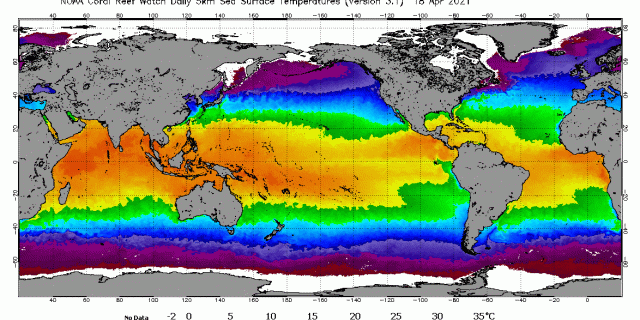by Bjorn Lomborg

Ever notice how, in the last decade or so, we quietly stopped just having storms and started having “extreme weather events”?
It feels like no temperature drop or seasonal downpour is too small for the media to slap a scary name on it and issue minute-by-minute warnings.
Well, now some news outlets and campaigners are trying to do the exact same thing for climate change itself.
“Global warming” isn’t scary enough to push through the expensive bills campaigners want. Instead of “climate change,” The Guardian has now decided to call it “climate emergency.”
And the British newspaper isn’t alone: Democratic presidential candidates including Beto O’Rourke and Kamala Harris use similar language, as does Rep. Alexandria Ocasio-Cortez.
Here’s the problem: The media and politicians are going far beyond the science, and by setting out to scare us, they risk making an entire generation over-worried and worse off — while tackling climate change badly.
According to the UN climate science panel’s last major report, if we do absolutely nothing, the impact of rising temperatures will be the equivalent to a reduction in incomes of between 0.2 and 2% in the 2070s.
That is equivalent to the impact of a single economic recession over the next half-century. To put this in context, humanity has managed to get through three global recessions in the last 40 years.
The panel notes that for most sectors, “the impact of climate change will be small relative to the impacts of other drivers,” such as changes in population, age, income, technology, relative prices, lifestyle, regulation, and governance.
Just pause and reflect on that. The UN’s own climate change panel tells us that looming demographic changes (like more people getting older) and other challenges are going to have a much bigger impact on us than climate change.
We have been here many times before. In the early 1970s, the Club of Rome think tank predicted humanity’s collapse: We would run out of food, oil, and all other resources, while runaway pollution would kill us.
The prescription was dire (and just the same as today): Cut consumption, have few or no kids and stop economic growth.
In the late 1970s, the UN’s Environmental Program told us that our greed and indifference was jeopardizing our future existence.
Playing on our fear of cancer, the body told us that half of all cancers were now caused by environmental pollutants. The correct amount is more likely to be 2%.
President Jimmy Carter’s Global 2000 report told us the quality of life on Earth would be terrible by the year 2000.
The UN Environmental Program warned in 1982 that environmental hazards were about to culminate in disasters “just as great as an outbreak of nuclear war.”
All of these doomsday narratives had a kernel of truth: They emphasized new and old threats like air pollution, acid rain, and global warming.
But although their catastrophe scenarios sold the message, their predictions and prescriptions were absurdly off.
Just the same thing is happening today. Climate change is real, and it merits attention — but the reality is far less dire than some campaigners suggest.
Climate activists embellish because they know their proposed fixes are incredibly expensive. Just the annual cost of the climate promises in the New Green Deal could cost more than $6,400 per person.
Consider that a new survey shows nearly seven in 10 Americans would vote against spending just $120 each per year to combat climate change.
Screaming headlines about “climate emergencies” may succeed in getting people to stop focusing on other policies like health care, pension reform or education and scare them into paying more to climate.
But we would end up spending trillions of dollars on policies that will actually do very little good for the climate — the global Paris Agreement will cost more than $1 trillion a year and yet only cut 1% of the emissions needed to do what it aims to achieve.
“Climate emergency” talk neglects the fact that we need better and cheaper climate policies that can also work in China and India.
This is about increasing investment in green R&D to innovate down the future cost of green energy below that of fossil fuels.
We also need to remember all the other challenges facing humanity — whether pension reform, health care or education in the richer parts of the world, or just basic food, health, and water in the poorer parts.
And we need to tackle each of those challenges without inaccurately labeling each of them a “crisis” just to capture attention.
Bjorn Lomborg is president of the Copenhagen Consensus Center.



